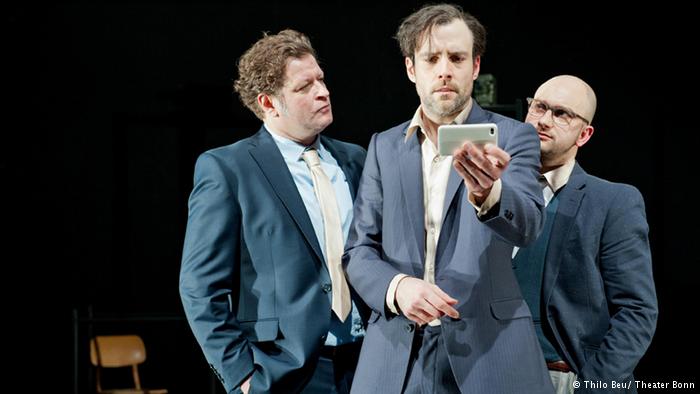German Play about Sex Abuse at School Stirs up Real-life Memories
Deutsche Welle
"I don't have any problem with men who are victims," his wife told him, "Only with those who don't want to be one." Hundreds of young boys have been sexually abused at boarding schools in Germany. Thomas Melle, who was born in Bonn in 1975, attended the Aloisiuskolleg, a Jesuit boarding school in Bad Godesberg near Bonn. Between the 1950s and 2005, sexual abuse occurred at the Aloisiuskolleg, as it did at the Casinius-Kolleg in Berlin and the Odenwaldschule. The cases were not made public until 2010. Melle has woven real events into his play, giving it a greater sense of urgency. However, the play is not meant to be a documentary of what really happened, he told DW. "Everyone who went to this school had to view their past in a new way - whether or not they were a victim," he said. The former pupils began a decades-long struggle with their own identity. 'No one wanted to hear their stories' In February 2010, some 500 former students from the Aloisiuskolleg published an open letter, in which they claimed to have been sexually abused at the school. In the final report of the Jesuit order's investigative committee, it read, "The abuse was not always visible at first glance." The main perpetrator covered up his actions as "custodial or educational measures," even allowing himself to shower with the pupils and rub soap on them. Ten-to-12-year-olds were required to undress completely before he took their temperature anally. How do the former students deal with being victims of a power trap in a closed system? Melle's play takes the perspective of the victims, which gives the viewer a glimpse into their emotional torture. The play focuses more directly on the individual, rather than the collective, aspect of the situation - which came out clearly after the performance during a round-table discussion with the audience and guests. A former chairwoman of the parent committee at the school admitted, "our children had to experience early on that no one wanted to hear their stories."
|
.
Any original material on these pages is copyright © BishopAccountability.org 2004. Reproduce freely with attribution.
